- Home
- Brian Falkner
The Flea Thing Page 4
The Flea Thing Read online
Page 4
I blinked out of the Thing, ran across to Frank and tossed him the ball. He was laughing. On the field Henry was sitting up and laughing also.
‘One day you’ll cease to amaze me,’ Frank said, ‘but this is not the day. Get changed, all of you. That’s enough for today.’
Ricky ‘Road Runner’ Albany was the only player who didn’t congratulate me as we walked back to the changing sheds, and after showers he took off without a word. As Henry walked with me over to Dad’s car, I wondered if I had done something to annoy him.
Dad was standing by the driver’s door looking at his watch. ‘We need to talk about this,’ he said, even before we got to the car.
‘Hello, Mr Scott.’ Henry held out a huge paw. ‘I’m Henry Knight, one of Flea … Daniel’s team-mates.’
Henry Knight just called me a team-mate. I grew about ten centimetres on the spot!
‘Pleased to meet you, Henry,’ Dad said, although clearly he wasn’t.
‘Is there a problem with Daniel coming to training?’
Henry towered above Dad, who looked up a little nervously. ‘It’s his homework. He’s still at school and he can’t spend so much time each week at training.’
It wasn’t that at all as I knew, so did Henry, and so, I think, did Dad. He just didn’t want to give up four hours each day and I could understand that.
Dad said, ‘I’ll have to talk to your coach. Maybe you can try out again another year.’
It was so unfair. I had already made arrangements for my homework. I was going to do some of it when I got home from training, and some in my lunch hour at school. It was nothing to do with homework.
I couldn’t speak. I just stood there, in some kind of shock. My career with the Warriors was going to be over before it had got started. But that’s when Henry waded in and Dad couldn’t argue with what he said. Henry saved my life.
‘Mr Scott, I’m sure Daniel can find time to fit in his homework. Every kid has homework, lots of them don’t do it at all. I’m sure Daniel will do all of his. I know it must be difficult for you, though, to take time away from your work to bring Daniel all this way.’
Dad kind of stuttered, ‘Yes, well, there is that too.’
‘But I live in Dairy Flat. I drive past Glenfield every day to get to training. It would be no problem for me to pick up Daniel on my way through and bring him home afterwards.’
‘Yes, but …’
‘This is a once-in-a-lifetime opportunity for Daniel. No other kid his age has ever played for the Warriors. Anything I can do to help him realise his dream, I’d be happy to do.’
Here was Henry, an almost complete stranger, saying he’d do anything to help me, while my own father was more worried about his own problems. Even I felt guilty on my Dad’s behalf.
Dad looked up at Henry for a little while. ‘I guess that’d be OK,’ he said finally, ‘but if his homework slips I may change my mind.’
‘It won’t slip!’ I almost shouted it with relief, but controlled my voice just in time. ‘And thanks, Henry.’
‘No problem, Flea,’ he said with a grin, ‘see you tomorrow.’
SEVEN
MASHED POTATOES
Mum invited Henry over for dinner the next week. It was a Sunday, and training finished at four, so she invited him over to say thank you for taking me to training each time. I asked if Jason and the guys could come because I had hardly seen them all week (as Jason had predicted). Mum said it was OK to invite Jason, but she wasn’t going to invite the whole rugby team. ‘League team’, I’d corrected her, but she’d just ignored me.
To my surprise Jenny was there too. I didn’t know she was coming and, to be honest, I would have been happier if Fizzer or Tupai had been there instead, what with Henry Knight there. Mum knows Jenny’s mum really well and they both thought it was kind of cute that she was my girlfriend, so I guess Mum must have invited her over and forgotten to tell me.
I wasn’t really sure that she was my girlfriend. We liked each other a lot and she told everyone I was her boyfriend. We’d known each other since forever and her birthday was just two weeks after mine, so we always went to each other’s parties. Sometimes we held hands walking home after school, but we hadn’t kissed or anything. She seemed more like a close cousin to me. Jenny coming to dinner meant I’d have to tell her about the Warriors, but that was no problem. I knew she’d keep it quiet for me. She was a good sort, Jenny.
Mum made a beautiful meal. She always did. Just like in a flash restaurant, with big white plates. This time we had what she called ‘an arrangement of braised chicken breasts and vegetables on a potato croquette’, with a creamy sauce drizzled across the food and the plate.
Mum liked making dinners like that when her arty friends came over, but I was a bit afraid that it would be lost on big Henry.
‘This looks beautiful, Mrs Scott,’ he said when she brought it out. It seemed funny him calling her Mrs Scott when he was twice her size, and Mum must have thought so too because she said, ‘It’s Lauren, and thank you.’
Dad was late because he had an important client visiting the gallery, so we started without him.
I carefully cut a bite-sized portion from the meat, the way I had been taught. Jenny and Jason, who had been around for dinner often enough, did the same. Jason had the most delicate table manners of anyone I knew, yet he could barely write his own name. Funny how life works like that.
‘It is beautiful, Mrs Scott … Lauren,’ Henry said with a smile as wide as Texas. ‘The chicken is delicious.’
‘Thank you, Henry.’ Mum smiled.
Henry had a slightly different way of eating than the rest of us, and I struggled to hold back a laugh. He didn’t cut the meat so much as stab it to death with his knife while he ripped a huge chunk off with his fork. He spun it around in the sauce before jamming the whole thing into his mouth.
‘Delicious,’ he said again with his mouth full. ‘And so are the vegies and this um …’
‘Croquette,’ my mum said with a look of apprehension. ‘It’s a potato croquette.’
Henry looked a little confused, so I chipped in, ‘It’s like mashed potato baked into a shape.’
‘I love mashed potato.’ Henry promptly squashed the croquette flat with his fork. He mashed some of the vegies and mixed them with the potato, swirling them around in a kaleidoscope of colours on his plate.
Jason covered his face with his hand to stifle a laugh and I took a big mouthful of chicken. We weren’t laughing at Henry, though. It was just that he was doing what the rest of us would have loved to do. Henry just mashed and mixed and ‘manners’ were not something he even thought about.
I decided then and there that I liked Henry a lot. I wanted to be like him when I was older. Laid back, easygoing, just enjoying life without following all its little rules.
Jenny asked, ‘Do you play rugby too?’
‘League,’ said Jason, and Jenny rolled her eyes. To her rugby was rugby was rugby.
‘I play for the Warriors,’ said Henry, ‘like Daniel.’
Jenny stopped eating. ‘What do you mean? Which Warriors?’
‘The New Zealand Warriors.’
‘The ones on telly?’
Henry laughed. ‘Yeah, those ones.’
Jenny thought about it for a minute. ‘But what do you mean ‘like Daniel’? He doesn’t play for the Warriors. He plays for Glenfield.’
Henry looked at me.
‘Not any more,’ I said proudly. After all these days of keeping it a secret it felt great to be able to tell someone. ‘I tried out for the Warriors and got in the first grade squad.’
Jenny actually dropped her fork. ‘You mean you’re going to be on telly?’ She didn’t really care about the rugby league, but she did care that her sort-of-boyfriend was going to be on telly.
‘You can’t tell anyone!’ I said quickly. ‘It’s all under wraps until Frank – the coach – makes an announcement to the newspapers and stuff.’
Jenny looked
at me out of the corner of her eye. ‘Are you joking me, because I …’
Henry said, ‘He’s not joking. But please don’t tell anyone just yet.’
‘You’re going to be on telly!’ Jenny almost screamed it. I’d never seen her so excited. ‘Oh my goodness!’
‘Do they really show some of your games on television?’ Mum asked, revealing the great depths of her rugby league knowledge.
‘All of them,’ Henry nodded.
‘You never said you were going to be on television.’ Mum was so surprised that she forgot her own manners and actually frowned at Henry stirring his food with his fork.
Henry froze. He glanced at me looking for all the world like a little boy who had just said a swear word in Sunday School and didn’t know why he was in trouble. My heart dropped. Jason saw it too.
Jason said, ‘Mrs Scott, your son’s going to be famous.’ And at the same time he said it he squashed his croquette flat and started stirring it into his vegetables.
Smash! My croquette followed. I winked at Henry and stirred away cheerfully. He immediately relaxed.
‘Jenny, promise not to tell anyone,’ I said. ‘Especially not Phil Domane.’
‘The boy without a brain,’ said Jason.
Jenny was in Phil’s class at school.
‘Phil Domane, the boy without a brain!’ Henry made a funny, laughing sound that I think you call a guffaw. ‘Who is Phil Domane, the boy without a brain?’
‘Captain of the Giants,’ I said. ‘He doesn’t like me very much.’
‘You’re going to be on telly,’ Jenny said again. ‘You’re going to be famous!’
EIGHT
JENNY CHANGES EVERYTHING
Jenny had a joke for me. It was a kids’ joke, and I’d heard it before, but I played along anyway to be polite. We were walking down to the boat ramp to watch the sun set over the upper harbour. There were thick, puffy clouds scudding along the horizon and a beautiful sunset was looming.
Jenny was carrying the lifejackets and paddles and I had Dad’s two-man kayak slung over my shoulder. (It was fibreglass and quite light.)
‘Will you remember me tomorrow?’ Jenny’s joke began.
‘Yes,’ I replied, with just a small smile because I already knew the punchline.
‘Will you remember me next week?’
‘Yes.’
‘Will you remember me next year?’ Jenny didn’t look at me, she just kept her eyes on the footpath.
‘Of course I will.’
‘Knock knock,’ Jenny said.
‘Who’s there?’
‘Daniel!’ she said indignantly, ‘you’ve forgotten me already.’
I laughed, even though I’d heard it before, and after a while Jenny did too. For just a moment I had the feeling that there was something more to the joke than I’d realised.
Jenny has a great laugh. Not a silly girls’ giggle, and not a snorty boys’ snicker. She has a wicked chuckle, a smile to match, and long auburn hair. She looks a lot like her mum, really.
I said, because it suddenly occurred to me, ‘You’re going to be very pretty when you’re grown up.’
Jenny looked at me and chuckled her wicked chuckle. I blushed and stumbled, ‘I mean, it’s not that you’re not pretty now, but … you’re … I mean …’
Jenny said, ‘I know what you mean,’ and I knew she did, ‘and thank you.’
It wasn’t easy saying nice things to girls. Even someone like Jenny who you’ve known your whole life. I shut my mouth in case any more silly stuff came out of it and hoisted the kayak a bit higher on my shoulder for comfort.
Dad had bought the kayak about four or five years ago. He’d said it would give us an activity that we could do together, and it was a healthy, outdoors kind of activity, which was really good for someone like him who was stuck inside all day.
The problem was, apart from that first summer, Dad had never had the time to go kayaking with me. So he’d stayed stuck inside all day while I went kayaking with Jason, or Fizzer, or Tupai. And sometimes with Jenny.
The tide was high, which was good, because this inlet of the upper harbour was not much more than a big creek really and it was pretty rank and boggy when the tide was out. But the tide was in and the water was still and the thick native bush that surrounds the inlet was glowing softly in the half-light. It was a fantastic evening. We strapped on our life jackets and paddled quietly out from the shore.
‘Is the boat still there?’ Jenny asked.
‘I think so.’ I tapped her on the shoulder and pointed. Ahead, in the deeper, wider part of the inlet a launch was moored, scarcely moving in the still water. It was quite a distance away but the sleek kayak sliced through the water like me through a Warriors’ pack, and we made good time over to the boat.
Its name was the Emma-Rose. It wasn’t quite a luxury launch, but it wasn’t all that bad either. It had one of those lowered platforms for scuba divers at the stern, and we both climbed up on to that. I tied the kayak up to a small bollard with a short painter.
The open, stern cabin had two bench seats that doubled as lockers. We climbed a small ladder up to a raised bridge with a comfortably padded captain’s seat and an equally well-padded bench seat. We sat beside each other.
The tide must have still been coming in, as the Emma-Rose’s bow was pointing up the harbour, right at the setting sun. I smiled at Jenny, and she smiled at me and brought out a small bag of biscuits that her mum had made.
‘You won’t forget me, will you?’ Jenny said. ‘When you’re rich and famous.’
I laughed with my mouth full. ‘I don’t know about ‘rich’. Everything I earn goes into a trust account until I’m eighteen. And as for famous …’
I stopped because Jenny was looking at me strangely. ‘No, Jenny, of course I won’t forget you.’
‘But you’ll be away all the time, travelling over to Australia, meeting other people.’
‘I won’t forget you,’ I insisted.
Jenny nodded and turned her face to the sunset. It truly was a beautiful sunset. There was a sliver of clear sky along the horizon above the Waitakere mountain ranges. The sun slowly dropped down into that thin gap and actually lit the low clouds from underneath, bathing them in a mixture of blood red and molten gold.
Jenny said, ‘I don’t want to sound selfish, and I really do wish you all the best with your new team, but I’m worried that you’ll become this big star and won’t want to know us ordinary kids.’
I started to say something but Jenny put her finger to my lips to stop me. She looked back at the sun rippling off the underside of the clouds and the waters of the upper harbour.
And then she kissed me. On the lips! And that changed everything.
Well, that’s not entirely true. She looked at me for a moment and the sunset caught in her eye and it was all a bit special really. Then she leaned forward to kiss me, but we were still wearing our life jackets and they got in the way, so we just kind of bounced off. I burst out laughing, then so did she.
We sat there for a moment longer, looking at each other, then Jenny unclasped her life jacket and tossed it down into the back of the boat, and after a moment I did the same. She put her hand behind my neck and kissed me gently and briefly, and it wasn’t as bad as I’d thought it would be.
We just sat there as the sun slotted into the ranges in the distance. We didn’t say a word, but it was a nice time anyway.
I guess after that she was no longer my sort-of-girlfriend. She was my girlfriend for real. In the future lay love and marriage and who knows what. But in the meantime, there was plenty of time just to sit. And watch the sun set.
NINE
CHAI-CHOP-SKI
‘It’s Tchaikovsky,’ I said again, and repeated the name slowly, ‘Tchaikovsky.’
‘Chai-chop-ski,’ Henry said for the third time, and I was starting to think he was taking the mickey. He said, ‘Why do you listen to all this old stuff anyway?’
One thing my parents had ins
tilled in me was a love of great music. Great melodies and harmonies and not just the bang-bang-scream-crash stuff that they play on the pop stations.
We were in Henry’s car on the way to the first game of the season. All the weeks of training and wind-sprints now seemed just a blur. Somewhere in all the excitement and hard work I had turned thirteen, but it had been on a training day and there had been no time for a party with my friends. Henry had brought a cake along to training that day though, which was nice of him, and he’d even baked it himself, which surprised me for some reason.
It was hard to believe I was going to run on to the field at last for the New Zealand Warriors. The excitement that had been growing in me for weeks was about to erupt like a volcano, with hurtling rocks and molten lava.
I turned the stereo up a little louder and said, ‘It’s called the 1812 Overture and it’s about a famous battle, if you listen you can hear the French attacking, and the Russians counter-attacking.’
Henry listened for a moment or two, then jumped when we got to the part with the cannons. I had the Minneapolis Symphony Orchestra’s renowned 1958 recording with the real antique French cannons.
‘It’s a bit like a game of league,’ he said, ‘all this attacking and counter-attacking.’
‘It is a bit. Those are real cannons,’ I said. ‘Cast in France in 1775.’
‘Don’t you listen to any real music?’ Henry asked.
‘This is real music.’ I was indignant.
‘You know what I mean. Rock or dance music. What all the other kids listen to.’
I had listened to quite a lot of it actually but it all sounded the same to me.
‘Chuck this in.’ Henry handed me a CD. ‘It’s an oldie but a goodie.’ I flipped out Tchaikovsky and put in his CD. For Henry, an ‘oldie’ meant something from the mid-nineties. As I expected: bang-bang-scream-crash.

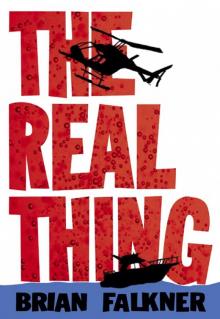 The Real Thing
The Real Thing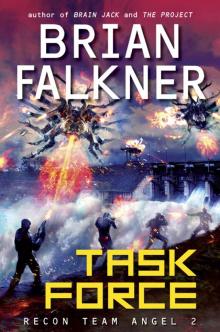 Task Force
Task Force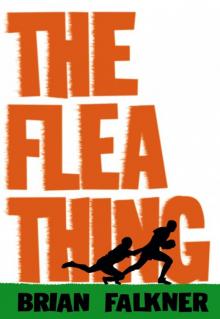 The Flea Thing
The Flea Thing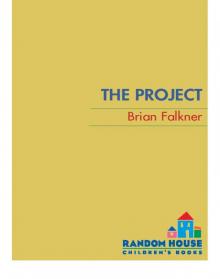 The Project
The Project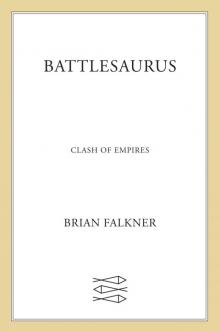 Clash of Empires
Clash of Empires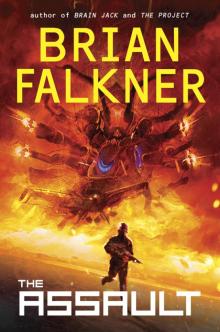 The Assault
The Assault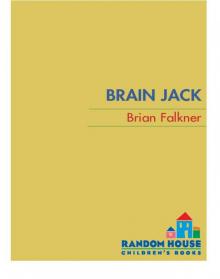 Brain Jack
Brain Jack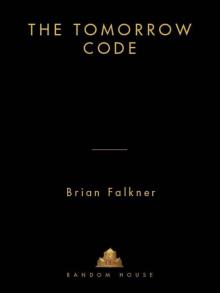 The Tomorrow Code
The Tomorrow Code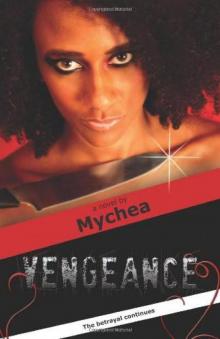 Vengeance
Vengeance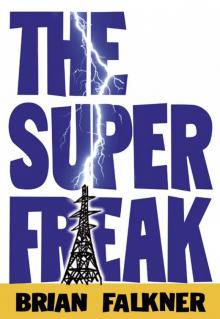 The Super Freak
The Super Freak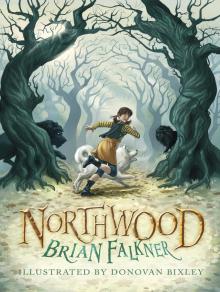 Northwood
Northwood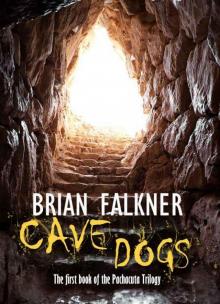 Cave Dogs (Pachacuta Book 1)
Cave Dogs (Pachacuta Book 1)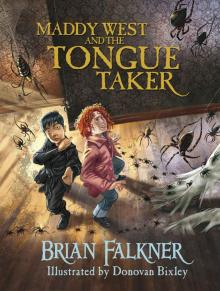 Maddy West and the Tongue Taker
Maddy West and the Tongue Taker